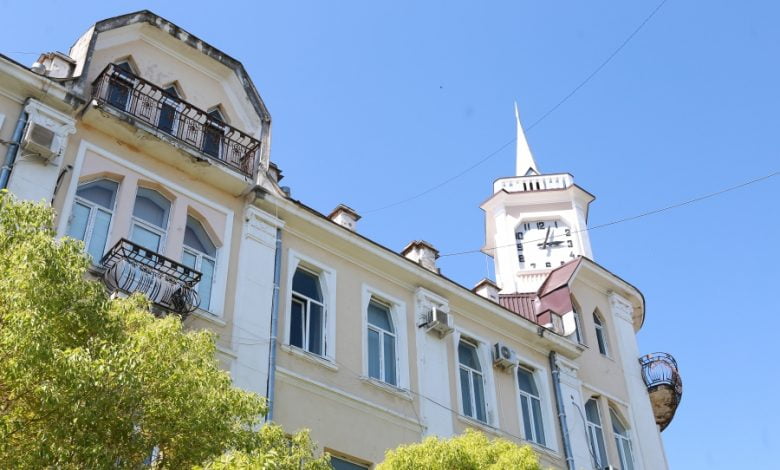
Ethnicity Law in Force, Abkhaz Speaker Says
Controversial Abkhaz ethnicity restoration law, targeting ethnic Georgians in the Gali district, faces an uncertain fate after “parliament speaker” Valery Kvarchia announced it stays in force.
Kvarchia asserted today that fellow lawmakers violated the legislative standing orders in their rushed revocation of the law in an extraordinary session on March 22, only a day after its adoption.
Listing off multiple counts of violations, Kvarchia, who initiated the controversial changes, said the legislators had not submitted a written and signed application required to hold the session.
Also, Kvarchia maintained that as he was not present during the sitting, rules stipulating the speaker’s conduct of a session and internal order were violated.
He added that his deputy Mikhail Sangulia violated the law by presiding over the meeting. Kvarchia argued Sangulia was only allowed to chair the session on his behalf.
“I did not entrust anything to anyone, and did not know that a meeting would be held,” Sokhumi-based Apsnypress news agency cited Kvarchia.
The legislation would allow some 30,000 ethnic Georgians living in the occupied Gali district to “restore Abkhaz ethnicity” and subsequently receive Abkhaz passports.
The previous Kremlin-backed administration of Raul Khajimba stripped the Gali Georgians, which make the overwhelming majority in the district, of Abkhaz “citizenship” in 2014 and 2017, depriving them of political rights.
Uncertain Fate
While Kvarchia maintained the controversial law is in force, the legislation still faces an uncertain fate as Abkhaz leader Aslan Bzhania has first to sign the law or return it back to the legislature.
But Bzhania has not yet made any comments on the controversial developments, and is currently on a trip to Moscow.
The administration of Bzhania, including “prime minister” Alexander Ankvab and current Gali district head Konstantin Pilia have on several occasions advocated for issuing passports to Gali residents.
But Bzhania’s camp has faced fierce opposition from Abkhaz hardliners, including the influential group of war veterans Aruaa.
They have previously reminded current “prime minister” Alexander Ankvab that the issuance of Abkhaz passports to Georgians led to his ousting from the presidential office back in 2014.
Chronology of Controversy
Speaker Valery Kvarchia tabled the legislative amendments in March 2021. After clearing the first hurdle later that month, the bill was stalled nearly for a year.
In an unexpected turn, the outgoing convocation of the legislature rushed the changes through second and third readings on March 21, 2022, sparking immediate outrage of the hardliners, with Aruaa group promptly slating a rally for March 23.
The veterans subsequently canceled the rally as Aruaa member Temur Nadaraia, former chief of Gali district, said lawmakers had apologized and withdrawn the legislation on March 22 extraordinary session.
The hardliners fear that giving Abkhaz passports to some 30 thousand ethnic Georgians in the region of less than a quarter-million people would undermine the Abkhaz ethnocracy in the occupied region.
The ethnic Georgian residents of Gali returned to Abkhazia at the end of the 1990s after a few years of uprooting following the 1992-1993 war.
Also Read:
- Puzzling Retreat on Ethnicity Law in Abkhazia
- New Law Targets Gali Georgians to ‘Restore Abkhaz Ethnicity’
- Draft Bill Targets Gali Georgians to “Restore Abkhaz Ethnicity”
This post is also available in: ქართული Русский